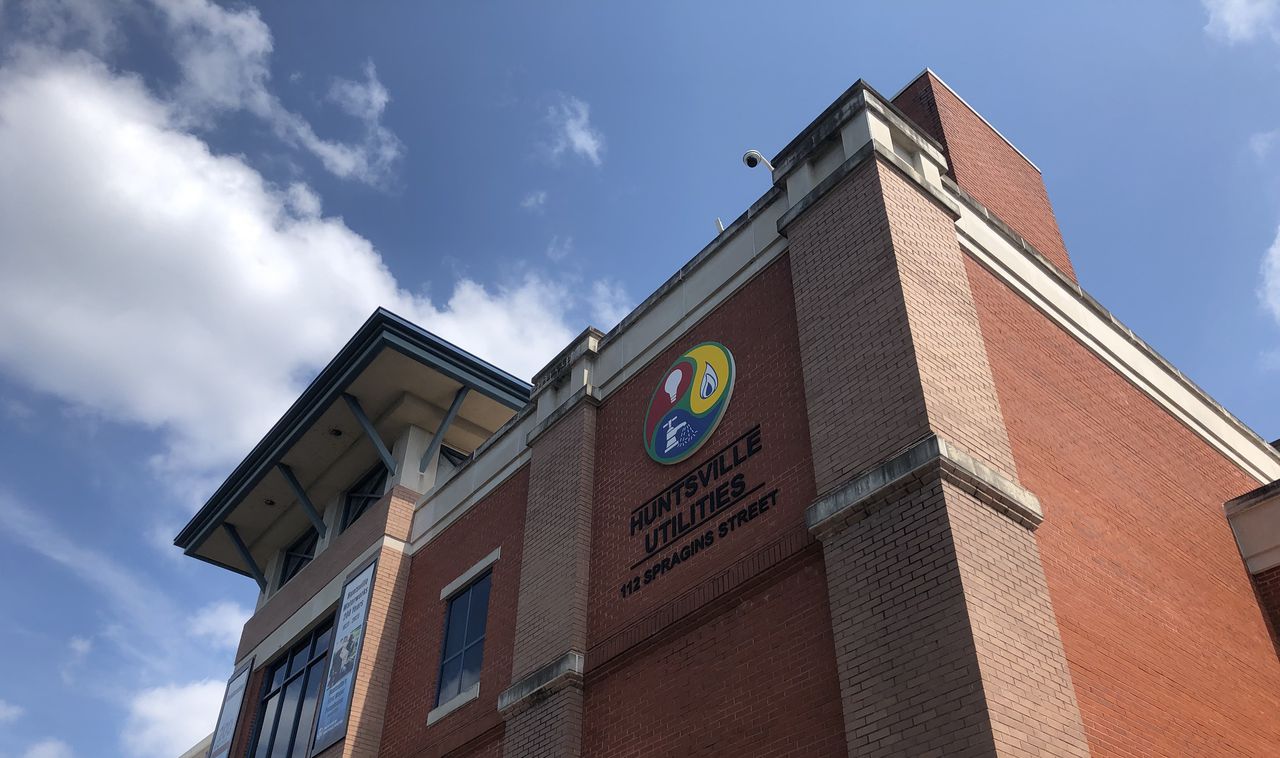As rate hike considered, why should Huntsville pay more for water?
Huntsville Utilities CEO Wes Kelley makes no effort to downplay the significance of the proposed 35 percent water rate hike to his customers.
The rate hike is needed, Kelley said, for a multitude of reasons. Huntsville Utilities is in the midst of more than $220 million in building projects while staffing size and costs have increased. And, of course, inflation.
Related: Huntsville Utilities proposes 35% increase in water rates
Ultimately, though, there is perhaps one question rising above all others as Kelley and his team prepare to formally make their request to raise rates to the city council on Thursday night: What is the customer getting for paying that 35 percent increase?
“You don’t have to worry about the quality of your water service,” Kelley answered. “We do our best work when people aren’t paying attention to us. When something goes wrong at Huntsville Utilities, all eyes shift to us very quickly. We do not want that to happen on the water system. We want our water system to stay reliable, healthy and available to meet the city needs both in terms of fire protection, growth, and existing customer needs.”
In other words, a good day for any water provider is when they are taken for granted. Or, put another way, a bad day for any water provider is when customers actually start to think about their water.
“Water is our most foundational piece of infrastructure,” Kelley said. “Water is unusual in that so many of the other services that we provide, they either work or they don’t work. Your lights are on or they’re off. Even fiber connections, they’re on or they’re off. Your (natural) gas is flowing or not flowing. But water, there’s a quality component there, which is critical.
“People focus on ‘I have water, but it’s brown,’ or ‘it’s too slow,’ or ‘it’s too fast,’ or ‘it doesn’t smell right’ or whatever. So quality is an interesting aspect to the water service.”
So that’s the objective, Kelley said. To make sure the water isn’t brown, to make sure that water pressure is in that sweet spot between too slow and too fast and to make sure your nose doesn’t notice the water. To check those boxes – and others – costs more money than Huntsville Utilities has at its disposal. So as reflected in the proposed rate hikes, more money is needed.
What does that mean to your wallet? The monthly water bill for a home that uses about 4,400 gallons of water will rise from $18.72 to $25.50. Huntsville Utilities said the new rate would still be among the lowest in north Alabama and compares favorably to other large cities across the state. For example, residential water customers in both Birmingham and Montgomery pay more than $40 per month, according to rates posted on their websites.
Huntsville Utilities has been making its case to customers in social media posts, spotlighting increasing costs that are drivers for the higher rates. Since water rates were last increased in 2016, water valves have seen an increase in price of 132 percent, according to one Facebook post. Another post states that the increased cost per shower would go from 2.1 cents to 2.8 cents. To wash a load of clothes, an increase from 1.6 cents to 2.1 cents. To water your yard, an increase from $1.35 to $1.82.
Kelley said Huntsville Utilities saw the need for a water rate increase as early as 2019 but delayed the request to the council for as long as possible. The COVID pandemic, when water usage declined, helped stave off that rate hike, Kelley said.
Facility improvements are the biggest cause for the increase, Kelley said. Huntsville has an aging system that needs refurbishment – which is already underway at the 1960s-era water treatment facility on South Memorial Parkway. That project alone is $23 million, Kelley said. Huntsville Utilities has two other water treatment facilities to maintain along the Tennessee River – one in Triana and one near the Lake Guntersville reservoir in Marshall County. The river is the source of about 85 percent of the utility’s water.
That water infrastructure is also supplying not only the largest city in Alabama in population but also in square miles. That translates into about 1,400 miles of water main pipes throughout the city.
“We’ve got significant infrastructure required to move water throughout the growing extents of Huntsville and to build more resiliency,” Kelley said.
Altogether, Kelley said Huntsville Utilities has spent $88.5 million on water construction projects over the last five years and has plans to spend another $139.5 million over the next five years.
“In the past, Huntsville Utilities might spend between $10 to $15 million a year on capital improvement projects,” Kelley said. “We’re now spending about $25 million a year and we don’t see that stopping. We expect to spend around $25 million dollars a year on improvements moving forward.”
The capital project expenses are the costliest. But they are not the only expenses Huntsville Utilities is seeking to address with the water rate increase. Kelley said employee expenses have gone up about 50 percent over the last five years while operating and maintenance expenses have seen a similar increase. Capital expenses, though, have gone up about 100 percent.
“We expect employee costs to go up some – not as much as they’ve gone up in the past,” Kelley said. “We’re expecting operating and maintenance expenses to rise at about 3 percent a year. That’s what we’re forecasting. But we’re expecting our capital costs to certainly not decline and probably increase with inflation.”
